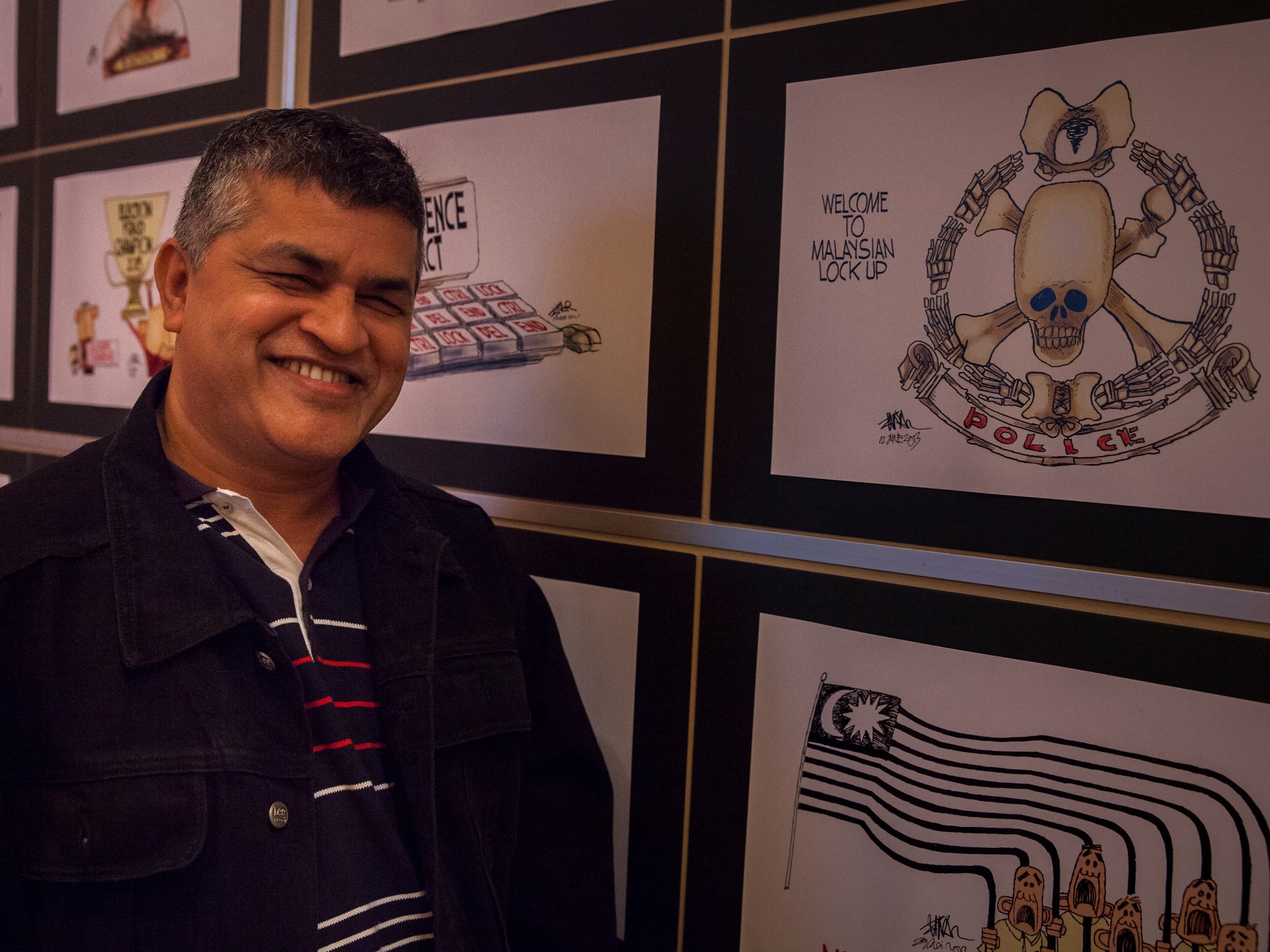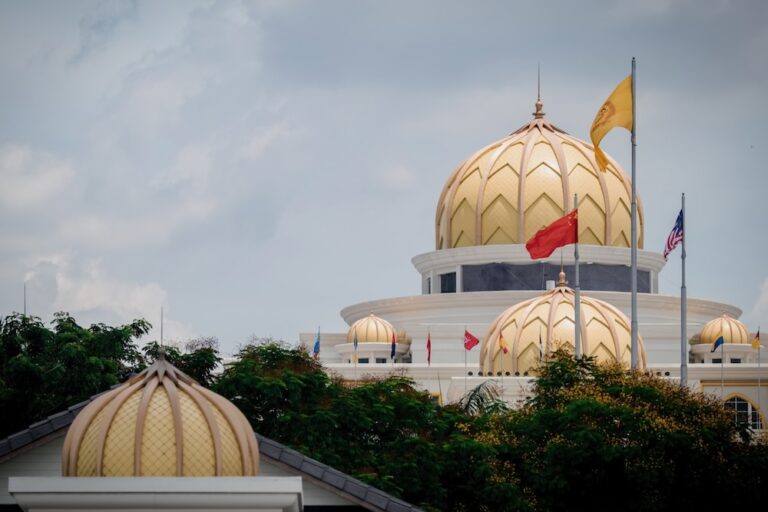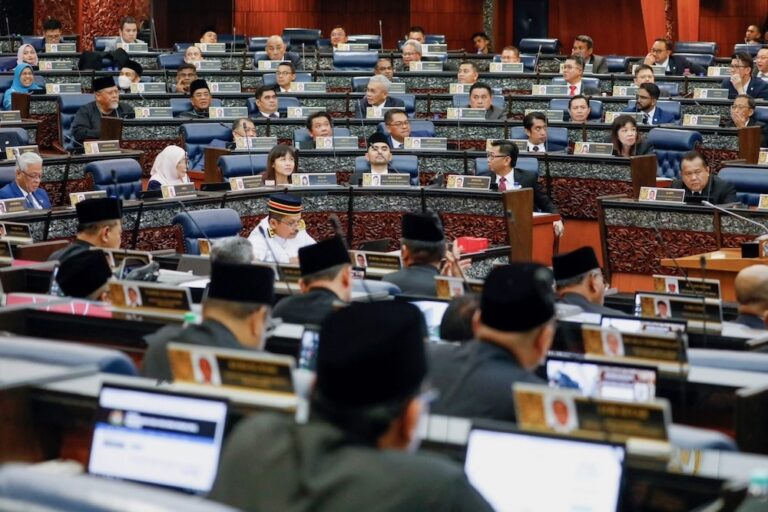A Malaysian court has rejected an appeal by political cartoonist Zunar against a ruling that his September 2010 arrest and the seizure of all the copies of a collection of his cartoons were carried out legally under the Sedition Act.
The recent ruling by a Kuala Lumpur appeal court in a case brought by political cartoonist Zunar was a direct violation of freedom of expression and information, Reporters Without Borders said on 7 November 2013.
In a decision issued on 1 November, the court rejected Zunar’s appeal against a high ruling on 21 July 2012 that his September 2010 arrest and the seizure of all the copies of a newly-published collection of his cartoons, called Cartoon-o-phobia, were carried out legally under the Sedition Act.
“As we said last year, at the time of the original ruling, this sets a dangerous precedent for journalists,” Reporters Without Borders said. “We reiterate our call for the ban on Zunar’s work to be lifted, we deplore the way he is being persecuted, and we urge the courts to reach a final decision in this case that is impartial and respects freedom of information.”
Zunar, whose real name is Zulkiflee Anwar Haque, was held for two days following his arrest on 24 September 2010. He subsequently filed a complaint accusing the police and interior ministry of acting illegally.
The appeal court’s ruling upholds the government’s position that the publication of the book of political cartoons was an act of criminal subversion. Zunar has said he now wants to appeal to a federal court.
“In my view, all these episodes are just part of the government’s mechanism to stop me from drawing cartoons exposing their corruption and wrongdoings,” Zunar said.
“Losing a case in appeal court against the government is common in Malaysia. But I think my case will set a new precedent because this is the first time a cartoonist has challenged the government on the Sedition Act and lost. Through this judgment, the courts are just giving the government more scope to act against cartoonists, artists, writers, bloggers and social media activists who are critical in their work and opinions,” Zunar added.
The authorities began trying to gag Zunar in 2009, when they seized around 400 copies of his book Gedung Kartun and threatened to withdraw the licences of printers and bookstores that produced or sold copies.
The government subsequently banned the sale of five of his books on the grounds that they were liable to endanger public order, thereby sabotaging the accord he had reached with a major distribution company. For his next book, The Pirates of the Carry-BN, Zunar had to conceal the printer’s name and use online marketing.
Malaysia is ranked 145th out of 179 countries in the 2013 Reporters Without Borders press freedom index.



